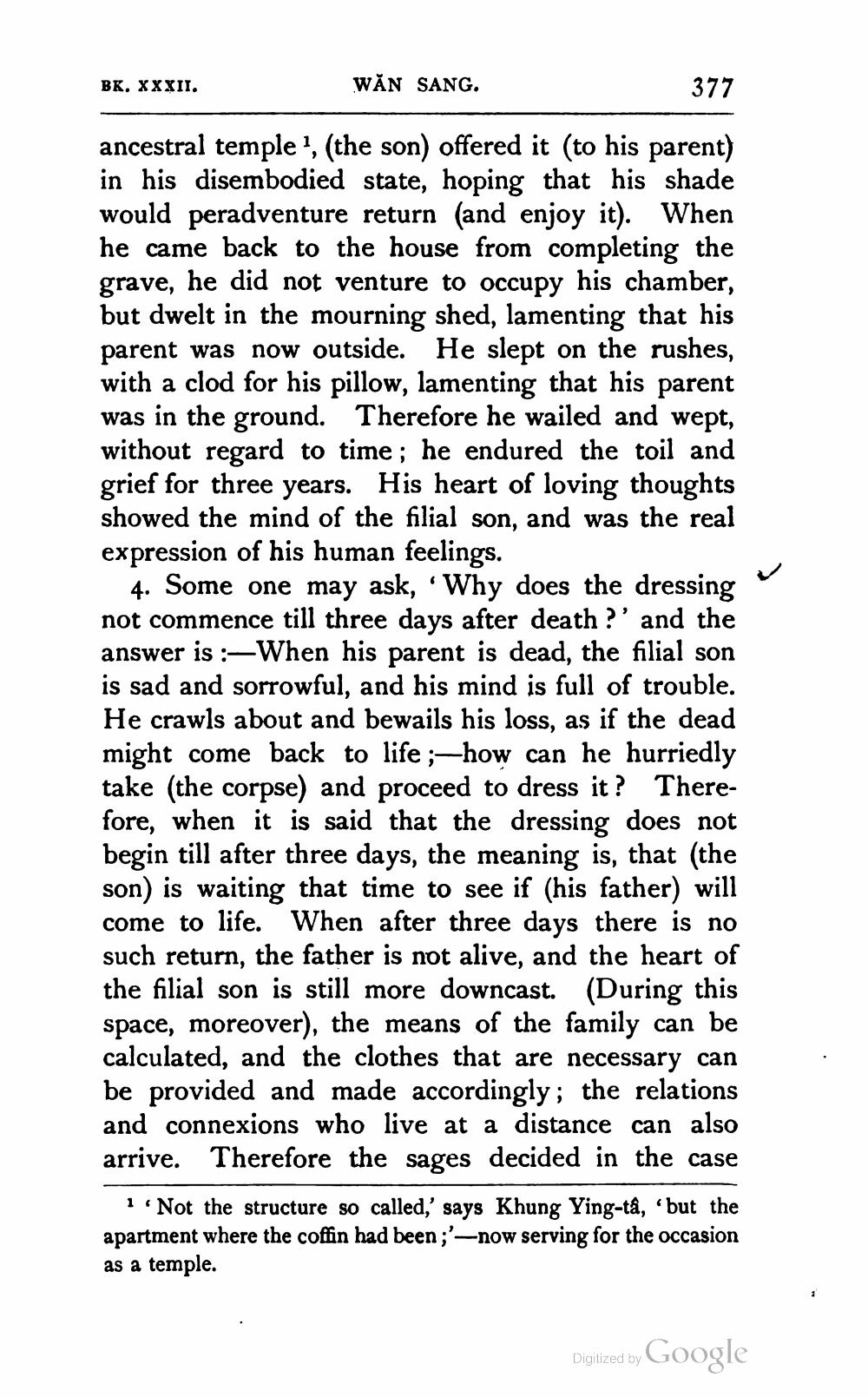________________
BK, XXXII.
WĂN SANG.
377
ancestral temple !, (the son) offered it (to his parent) in his disembodied state, hoping that his shade would peradventure return (and enjoy it). When he came back to the house from completing the grave, he did not venture to occupy his chamber, but dwelt in the mourning shed, lamenting that his parent was now outside. He slept on the rushes, with a clod for his pillow, lamenting that his parent was in the ground. Therefore he wailed and wept, without regard to time; he endured the toil and grief for three years. His heart of loving thoughts showed the mind of the filial son, and was the real expression of his human feelings.
4. Some one may ask, “Why does the dressing not commence till three days after death ?' and the answer is :—When his parent is dead, the filial son is sad and sorrowful, and his mind is full of trouble. He crawls about and bewails his loss, as if the dead might come back to life ;-how can he hurriedly take (the corpse) and proceed to dress it? Therefore, when it is said that the dressing does not begin till after three days, the meaning is, that (the son) is waiting that time to see if (his father) will come to life. When after three days there is no such return, the father is not alive, and the heart of the filial son is still more downcast. (During this space, moreover), the means of the family can be calculated, and the clothes that are necessary can be provided and made accordingly; the relations and connexions who live at a distance can also arrive. Therefore the sages decided in the case
1.Not the structure so called,' says Khung Ying-tå, but the apartment where the coffin had been ;'-now serving for the occasion as a temple.
Digitized by Google




